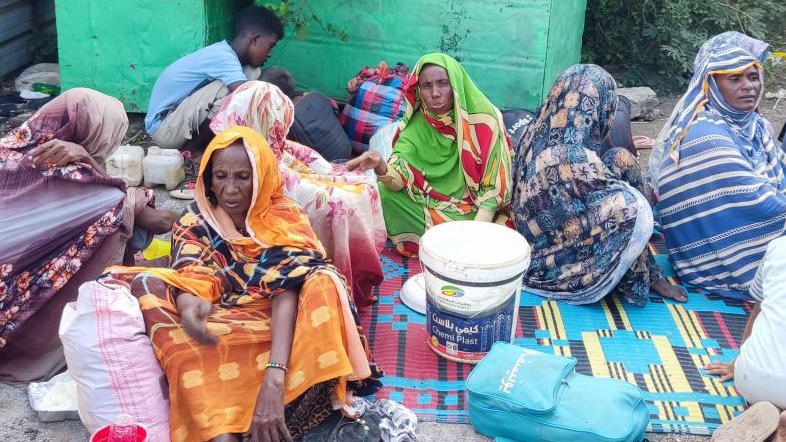A senior UN official, Clementine Nkweta-Salami, has expressed grave concern over reported atrocities in Sudan’s Gezira state, particularly regarding a recent assault attributed to the Rapid Support Forces (RSF). This paramilitary group has been accused of carrying out a series of brutal attacks that led to the deaths of at least 124 civilians, according to an activist organization. The RSF, however, has refuted these claims, asserting that they are engaged in confrontations with militias supported by the military rather than targeting civilians. This ongoing conflict, which has persisted for 18 months, has resulted in a staggering death toll and caused the displacement of over 11 million people across Sudan.
Recent developments in Gezira state intensified after a significant shift in allegiance among military factions. The RSF experienced a notable setback when one of its commanders, Abu Aqla Kayka, defected to the military, reportedly bringing a substantial portion of his forces with him. This marked a turning point in the ongoing struggle between the RSF and the Sudanese army, with the latter characterizing the defection as a major strategic victory. In retaliation, the RSF vowed to protect itself against perceived aggression, emphasizing their readiness to confront anyone bearing arms.
The UN’s Nkweta-Salami has highlighted that preliminary reports indicate a pattern of horrific violence initiated by the RSF from October 20 to 25, leading to numerous casualties. The attacks reportedly included mass killings, sexual violence against women and girls, looting of properties, and destruction of agricultural lands. The nature of these crimes has been likened to earlier instances in Darfur, where the RSF faced allegations of ethnic cleansing against communities opposed to their actions. The rising death toll remains uncertain, but initial assessments indicate that many lives were lost during these shocking events.
The reporting from Sudan’s local groups, such as the Wad Madani Resistance Committee, paints a grim picture, categorizing the RSF’s actions as extensive massacres across multiple villages. The Sudanese doctors’ union has issued calls for international intervention from the UN, urging pressure on both warring factions to agree to establish humanitarian corridors to allow aid and rescue operations for affected civilians. They described the ongoing crisis as genocidal in nature, asserting that the military’s capacity to protect civilians is severely compromised.
The conflict in Sudan originally erupted in April 2023, following a power struggle between two prominent military leaders, Gen Mohamed Hamdan Dagalo of the RSF and Gen Abdel Fattah al-Burhan of the regular army. The two had previously collaborated in staging a coup in 2021 that derailed Sudan’s transition to democracy, but their relationship has since soured, leading to violent confrontations. Despite multiple attempts—most notably by the U.S. and Saudi Arabia—to broker a peace agreement, both factions have remained obstinate, prolonging the humanitarian crisis and further destabilizing the region.
The dire situation in Sudan has underscored the urgent need for international intervention and support to alleviate the suffering of the civilian population trapped in the conflict. The UN and humanitarian organizations are increasingly pressured to respond, as the conflict escalates and the humanitarian conditions deteriorate. With warnings of genocide and ongoing mass atrocities, the international community faces a critical moment to reassess its approach to supporting peace and assistance in Sudan amidst the turmoil.

